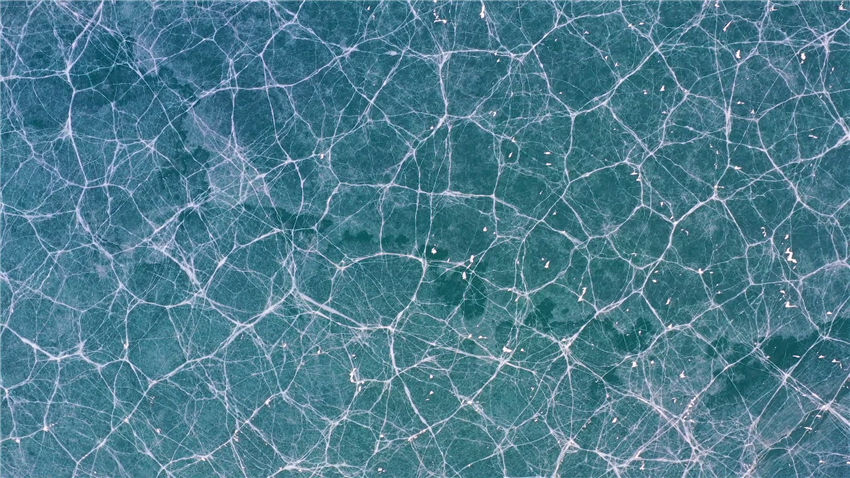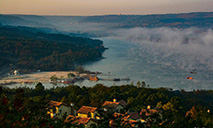Interview: Possibility of further volcanic eruptions in Tonga can't be excluded, says expert
LONDON, Jan. 19 (Xinhua) -- The volcano in Tonga might go quiet after eruption, but the possibility of further explosions can't be excluded, a British expert on volcanoes said Tuesday.
As rescue teams continued to head to the collection of islands in the Pacific Ocean, Professor Mike Burton from the University of Manchester told Xinhua in an interview that "Because the volcano is basically submarine, we don't know what's going on."
"Almost anything could happen, and we just have to wait and see at this point," said the volcanologist at the university's Department of Earth and Environmental Sciences.
The eruption on Saturday propelled thousands of tonnes of ash high into the atmosphere and set off a tsunami. Many of the roughly 170 islands around Tonga are covered with a thick layer of volcanic ash.
The Tonga volcano, hundreds of kilometers underwater, and around 65 kilometers from Tonga's capital, is something of a mystery, said Burton, who tries to understand when a volcano might erupt by measuring the flux and composition of the often deadly poisonous gases created by volcanic activity.
"The latest eruption which occurred on Jan. 15 is possibly the biggest eruption we've seen for the last 30 or 40 years. I say possibly, because there are still some question marks over exactly what happened," he said.
"It appears to be contradictory in some ways. In one sense, there's a sign that this was a very powerful, very big explosion, as it appeared to have gone up very high into the atmosphere, up to about 35 kilometers in height," Burton said.
"To get that high in the atmosphere, you normally need a huge amount of material to erupt. But instead there's observation suggesting there wasn't that much material that erupted. This comes from both looking at the ash fallout and from the amount of gas released," he added.
Burton said whether the main eruption is a prelude to another big eruption is yet unknown.
The impact of the Tonga eruption was felt as far away as in Peru and Japan, and it seems to have damaged Tonga in particular, he said, adding that as the eruption seems to have severed the only communication cable into Tonga, the magnitude of the damage suffered by Tonga is still sketchy.
Looking to the immediate future, Burton said one of the biggest threats, which isn't immediately obvious, is the risk of a deadly lava flow if there are rainstorms.
"You can imagine if you get lots of fine ash and coarser ash landing on the ground in depths of meters, and then there's big heavy rainfall, you can get big mud flows which can be very destructive," he warned.
As for any risk to the wider area of the Pacific Rim, Burton said it might impact ozone concentrations.
"Because there was obviously a big interaction with seawater, it may be possible there were some unusual chemicals which were injected in great amounts into the stratosphere, things like chlorine and hydrogen chloride. It is one of the gases which can destroy ozone," he said.
Burton said the risk of a future tsunami hitting China was now unlikely.
"The impact of the tsunami was within 24 hours or 36 hours of the actual eruption. Now that we're three days past the eruption, the likelihood is there is no more tsunami coming out from the eruption," he said.
Photos
Related Stories
- No Chinese hurt in tsunami-hit Tonga
- Interview: Tonga volcanic eruption not likely to cause global climate change, says New Zealand volcanologist
- In pics: Before and after satellite images of volcanic eruption in Tonga's Hunga Ha'apai island
- UN, agencies prepare relief efforts following Tonga volcano eruption
- Concerns mounting over tsunami-hit Tonga as countries pledge aid
Copyright © 2022 People's Daily Online. All Rights Reserved.










